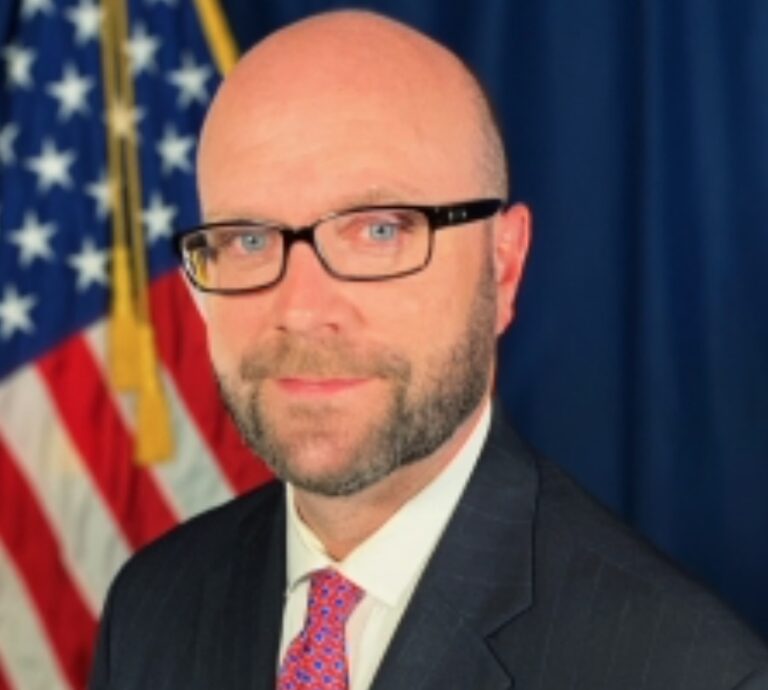By REP. KEVIN MCCABE
A question we get from Ranked Choice Voting advocates on social media, especially when posting signing locations for our new initiative to put RCV repeal back on the ballot in 2026 is: “Why are you doing this again?” Also we hear the occasional accusation that we’re just “sore losers” and that “the people of Alaska have spoken.”
Not so fast.
If the original process had been fair, we wouldn’t be out here doing this again. We wouldn’t be living a political version of “Groundhog Day,” organizing another signature drive to repeal RCV.
In 2019, a group called Alaskans for Better Elections, flush with out-of-state dark money, launched a petition to get RCV on the ballot. Their initiative bundled three issues: dark money disclosure, jungle primaries, and ranked-choice voting. Lieutenant Governor, Kevin Meyer, and the Division of Elections challenged it in court for violating Alaska’s single-issue rule, but the liberal courts green-lit it anyway. That decision allowed the measure to move forward, despite widespread legal concern.
Paid signature gatherers secured just enough signatures. By the time most Alaskans realized what was in the initiative, it was too late. The “Yes” campaign painted the effort as a noble cause to “end dark money” even as they used dark money to fund the campaign. The measure passed narrowly: 50.55 to 49.45%.
Then came the fallout. The Division of Elections overspent its budget trying to educate voters on RCV, yet confusion reigned across the state in the 2022 elections. We saw it firsthand at the polls and in conversations with neighbors and friends. People didn’t understand how the system worked. The result? Many votes were wasted. Many voters felt betrayed. And they were right.
The Foundation for Government Accountability has published detailed reports on how Ranked Choice Voting discards legal ballots, increases election errors, and undermines the principle of one person, one vote. They point to Maine’s 2018 Second Congressional District race, where over 8,200 ballots were thrown out and the winner flipped from Republican Bruce Poliquin to Democrat Jared Golden, even though Poliquin received more first-choice votes.
Alaska saw the same thing in 2022. Democrat Mary Peltola won our only US House seat not because she had the most first-choice votes, but because Republican ballots were tossed after voters selected just one candidate and refused to rank others. Over 11,000 such ballots were discarded, silencing conservative voices in a state that voted for Donald Trump by more than 10 points. These weren’t mistakes, these were deliberate, principle-driven votes that were erased from the final tally.
Shawn Fleetwood, writing in The Federalist, called this the dirty secret of Ranked Choice Voting, one that punishes conservatives for voting their conscience and refusing to “rank” opponents they don’t support. According to Fleetwood, RCV is “a confusing form of counting votes” that violates the principle of one person, one vote. He points out that nearly 15,000 Alaskans were disenfranchised in the 2022 special election alone.
It gets worse. In New York’s 2021 Democratic mayoral primary, the Board of Elections mistakenly counted 135,000 test ballots. It took nearly a month to sort through 19 rounds of tabulation. In Alameda County, California, a school board race was wrongly called, and the mistake wasn’t discovered for two months. The candidate who had conceded ended up being the actual winner. In Arlington, Virginia, RCV was so confusing that election officials scrapped it after just one cycle.
These are not growing pains. These are symptoms of a system designed to complicate, confuse, and obscure. They’re not bugs, they’re features.
The complexity of RCV favors one political side. In 2023, the FGA found 74 pro-RCV bills were introduced across the country, 57 backed exclusively by Democrats. Senators Michael Bennet and Angus King even introduced a bill to funnel $40 million in federal grants to states adopting RCV. Why? Because it works for them. It splits conservative votes, buries outsider candidates, and manufactures victories through reallocated ballots.
Fleetwood lays it out clearly: RCV isn’t some bipartisan innovation, it’s “a scheme of the Left to disenfranchise voters and elect more Democrats.” In Portland, Maine, a Charter Commission candidate won with just 4 percent of the first-round vote, while a Republican with five times as many votes lost. This isn’t about majority rule, it’s about engineering outcomes through redistribution.
Even when conservatives win the first round, RCV often hands victory to the Left because it counts some ballots more than once while tossing out others completely. The FGA calls this a “false majority,” manufactured not by persuasion but by exhaustion, discarding anyone who didn’t play the ranking game the right way.
In 2022, Alaskan’s started fighting back. A grassroots group called Alaskan’s for Honest Elections launched a petition drive to repeal RCV. Many were proud to volunteer and help gather signatures, working booths at the fair and Outdoors shows and speaking to hundreds of voters. People came to us. They knew what RCV had done. They didn’t need persuasion, just a place to sign.
But then came the intimidation. We were surveilled. Photos were taken. Opponents filed a barrage of APOC complaints, using legal threats to slow us down. When our petition was certified by the Division of Elections, they filed suit again to have it blocked. The case went all the way to the Alaska Supreme Court. We won.
But the money returned. Over $15 million poured into Alaska to oppose our initiative, most of it from out of state They flooded the airwaves with misinformation, even warning military voters that repealing RCV would take away their voting rights, an outright lie. After three long weeks of delayed counting, our repeal failed by just 743 votes.
We didn’t quit.
In 2025, we filed again. The Division of Elections approved the new petition, and signature collection is now underway for the 2026 ballot (Must Read Alaska, 2025). This time, we’re focused, experienced, and ready. Politics and pride have no place here. Whether you love RCV or hate it, let’s at least ensure the people of Alaska can vote fairly on it,without dark money, without confusion, and without outside interference.
It’s time to bring our elections back to what they’re supposed to be: one person, one vote, clearly counted and transparently won.
Alaskans, not D.C. lawyers, not California nonprofits, and not rigged algorithms, should decide Alaskan elections. Find a volunteer, sign the petition. STOP RCV!









